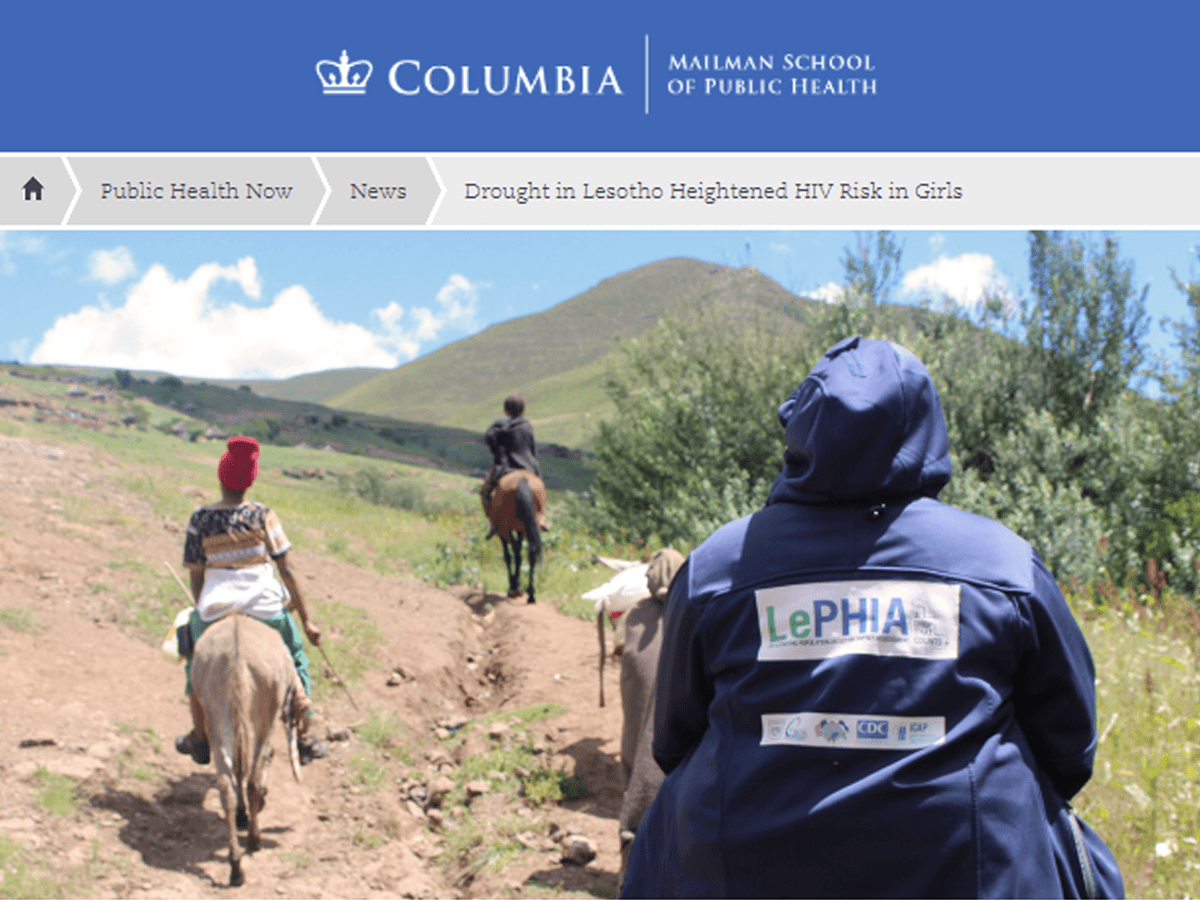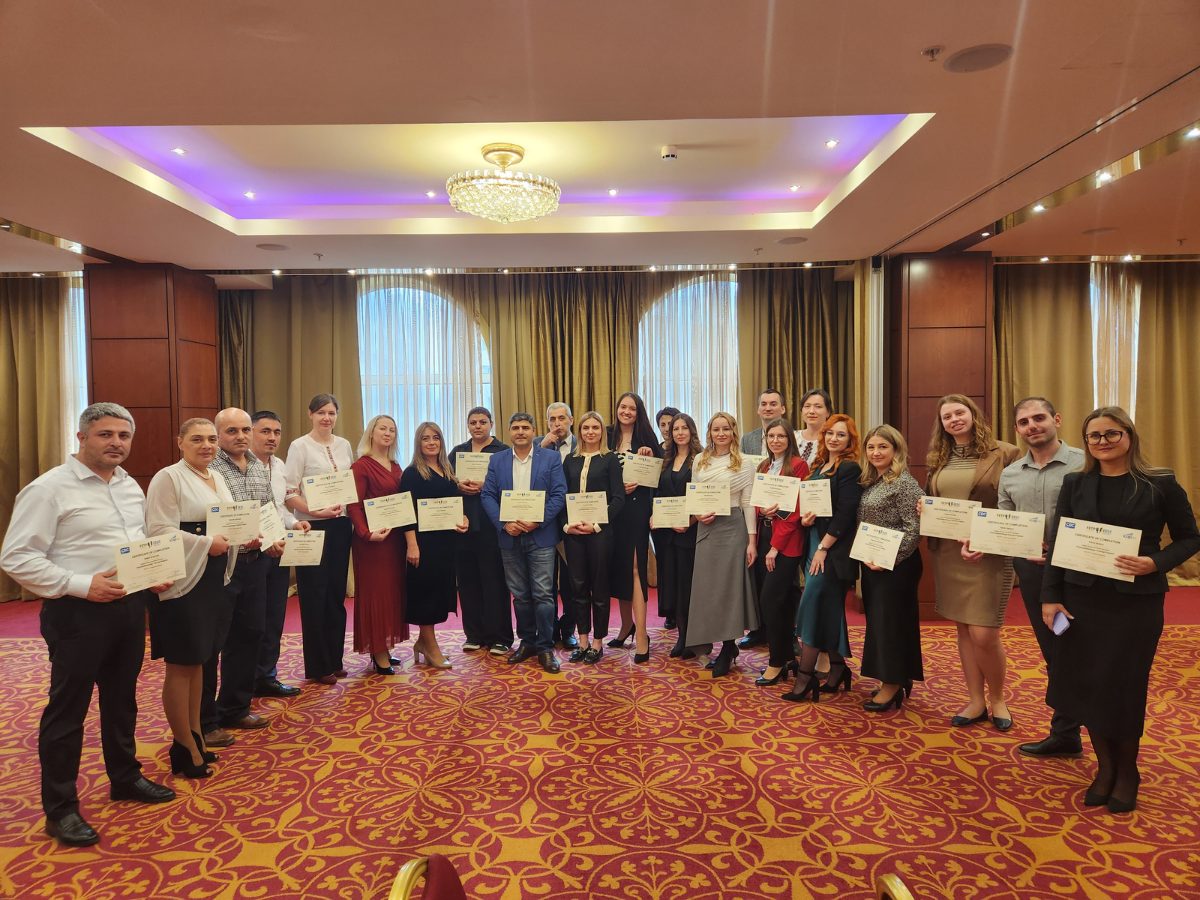Adolescent girls exposed to severe drought conditions in rural Lesotho had higher rates of HIV, according to a new study led by researchers at ICAP at Columbia University, a global health organization based at the Columbia Mailman School of Public Health, and from the Lesotho Ministry of Health and U.S. Centers for Disease Control and Prevention. Adolescent girls and young women in rural areas of drought were also more likely to engage in high-risk behaviors, including sex work, and were more likely to drop out of school. The findings are published in the journal PLOS Medicine.
Read the full article on the Mailman School website.
Read the original publication on PLoS Medicine.
Other media links:
- Climate shocks threaten gains against HIV in Africa, researchers say (Reuters)
- Africa: Climate Shocks Threaten Gains Against HIV in Africa, Researchers Say (AllAfrica.com)
- Lesotho study links climate shock to HIV infection rates (AfricaTimes.com)
- How Climate Changes is Affecting Progress in the Fight Against HIV in Lesotho (VenturesAfrica.com)
- Climate change is affecting HIV epidemics in Africa (Avert.org)
- Droughts lead to higher levels of HIV in Lesotho (Sustainability-Times.com)
Cited in:
- Fueled by climate change, Zimbabwe’s erratic harvests cause farmers with HIV to struggle (CNN)
- Le dérèglement du climat pourrait conduire à une augmentation du risque d’infection au VIH (Liberation.fr) – interview with first author Andrea Low






